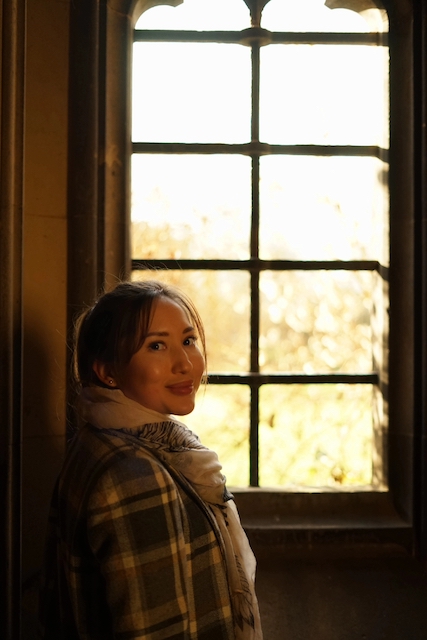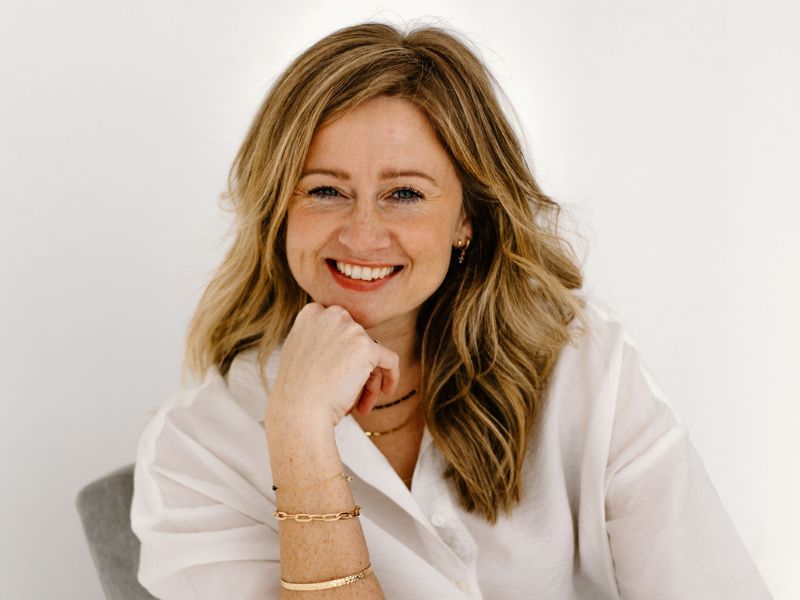 While studying a Master’s at Nazarbayev University’s Graduate School of Education, Kamila Rollan realised that inclusive education in Kazakhstan was almost non-existent and saw an opportunity to help marginalised youth gain access to school and education.
While studying a Master’s at Nazarbayev University’s Graduate School of Education, Kamila Rollan realised that inclusive education in Kazakhstan was almost non-existent and saw an opportunity to help marginalised youth gain access to school and education.
At only 22 years old, she founded ‘Education For All’, a non-profit organization aimed at supporting inclusive education development in Kazakhstan. They support children with and without learning disabilities to learn together, promoting social and education opportunities. Kamila is currently pursuing a PhD at the University of Cambridge, researching inclusive education reform development in Central Asia.
Tell us a bit about yourself, background and your current role
My name is Kamila Rollan, and I am an alumna of Nazarbayev University in Kazakhstan. During my Bachelor studies in Political Science at NU, I volunteered with children from vulnerable backgrounds and with special needs, providing them with free academic support classes. This is where I developed an interest in educational inclusion and so continued my studies at NU on the Master’s program in Educational Leadership with an inclusive education track. As a Master’s student, I was exposed to local and international approaches to ensuring equitable access to education for all learners and had a chance to intern and study as an exchange student in the US and China. My growing knowledge and passion for this area motivated me to open a non-profit organization named “Education For All” which is aimed at supporting inclusive education development in Kazakhstan. Starting with a team of several volunteers and myself, now our NGO is a well-established and growing organization providing academic classes, social skills courses and professional orientation (transition) programs for youth with disabilities and special educational needs. We cater for more than 40 families in Astana and have been recognized by Forbes Kazakhstan and several other respectable outlets as a valuable social project. Upon successful completion of my Master’s, I had an opportunity to work for UNICEF and the Social Trust Foundation. Currently, I am a PhD student at the University of Cambridge researching inclusive education reform development in Central Asia, while continuing to serve as a Chair of our “Education For All” NGO.
Did you ever sit down and plan your career?
Yes, I favour both macro- and micro-planning in terms of career development. Having a long-term vision of where I want to be is important to for me keep on track but I do prefer to maintain a degree of flexibility, which is why I am rather micro-ambitious. You never know when a good opportunity will present itself. Although I do use planners to organize my daily and monthly plans.
Have you faced any challenges along the way?
I believe that a major challenge in the area of my work is the social stigma around individuals with disabilities and special needs. Many people underestimate the potential of those with special needs, think it is too much work to accommodate for their needs, and deny the value of diversity. A culture of discrimination and diminishing less privileged individuals does not allow for a quality education or for social inclusion. Even a charity approach to inclusion is unproductive as it portrays people with disabilities and special needs as someone less fortunate and less capable in need of social pity and help. Building the case of my NGO around advocacy, human rights, and diversity was not always understood by sponsors and the general public. I hope a cultural shift will happen soon and inclusion will become a fundamental social value.
On a personal level, one of my biggest challenges has been managing time and attention while combining full-time studies with a full-time commitment to opening a social foundation, and then after graduation, a full-time commitment to the social foundation with full-time work for other organizations. I have always been multitasking while trying to set high-quality standards in my work, which is challenging but rewarding. Self-discipline, self-care and a strong sense of purpose is what helps me to deal with this challenge.
What has been your biggest achievement to date?
Founding an NGO and starting PhD studies at Cambridge have been my largest achievements so far. Both of these goals seemed too ambitious for me at the beginning and required a lot of work and dedication to get achieved. Now, I am happy to be where I am and to work in the area which I find truly valuable and meaningful.
What one thing do you believe has been a major factor in you achieving success?
It is hard to distinguish a single factor that helped me to achieve my goals. I see it rather as a combination of strict commitment to my goals, hard work, support of family, friends, teachers and professors, and sometimes a bit of pure luck. But if I had to choose one thing, I would say persistent hard work is the most important ingredient to success. I do not believe that winning lotteries or cheating on exams can result in lasting success, or that a single charity contribution made once in a lifetime can bring an actual social change. But if one works hard enough persistently, then there are no limits to what they can achieve.
How do you feel about mentoring? Have you mentored anyone or are you someone’s mentee?
I see mentoring as a strong tool to support development. I have had mentors throughout my life, starting with my English language teachers on middle school and ending with my thesis supervisor at NU. These people provided me with advice at different stages of my life, may it be professional or personal. I also enjoy mentoring others, because sharing my knowledge and experience can help them in making more informed decisions and gaining new perspectives. By helping others, we become better ourselves.
If you could give one piece of advice to your younger self what would it be?
There is a different piece of advice I would give to myself at different ages. But if I have to think about something universal, then I would suggest worrying about other people’s opinions less, questioning my beliefs more often, reading literature more, and always getting enough sleep. Because an intelligent healthy person resistant to social judgements is a good starting point to becoming someone remarkable. But also, as my supervisor at NUGSE advised me, enjoy life.
What is your next challenge and what are you hoping to achieve in the future?
Within the next three years, I plan to complete my PhD at the University of Cambridge and to become a professor in Kazakhstan, teaching about inclusive education. It always surprised me that all of my professors were international and no one was local. Even though learning from those with an international experience is important, I believe in raising the local capacity of specialists in Kazakhstan. Therefore, I would like to become such a professor myself and to contribute to raising new experts in inclusive education for the future. Meanwhile, I hope to get involved in different projects on inclusive education development in Kazakhstan and Central Asia because I enjoy working on applied projects rather than be fully committed to academia. Equally important, I hope to maintain a balance in life and work and enjoy different experiences: bungee jumping, swimming with sharks, improving my guitar playing skills and getting a dog!
WeAreTheCity has a back catalogue of thousands of Inspirational Woman interviews, including Cherie Blair, Paula Radcliffe MBE, Caprice Bourret, Anna Williamson and many more. You can read about all our amazing women here.








